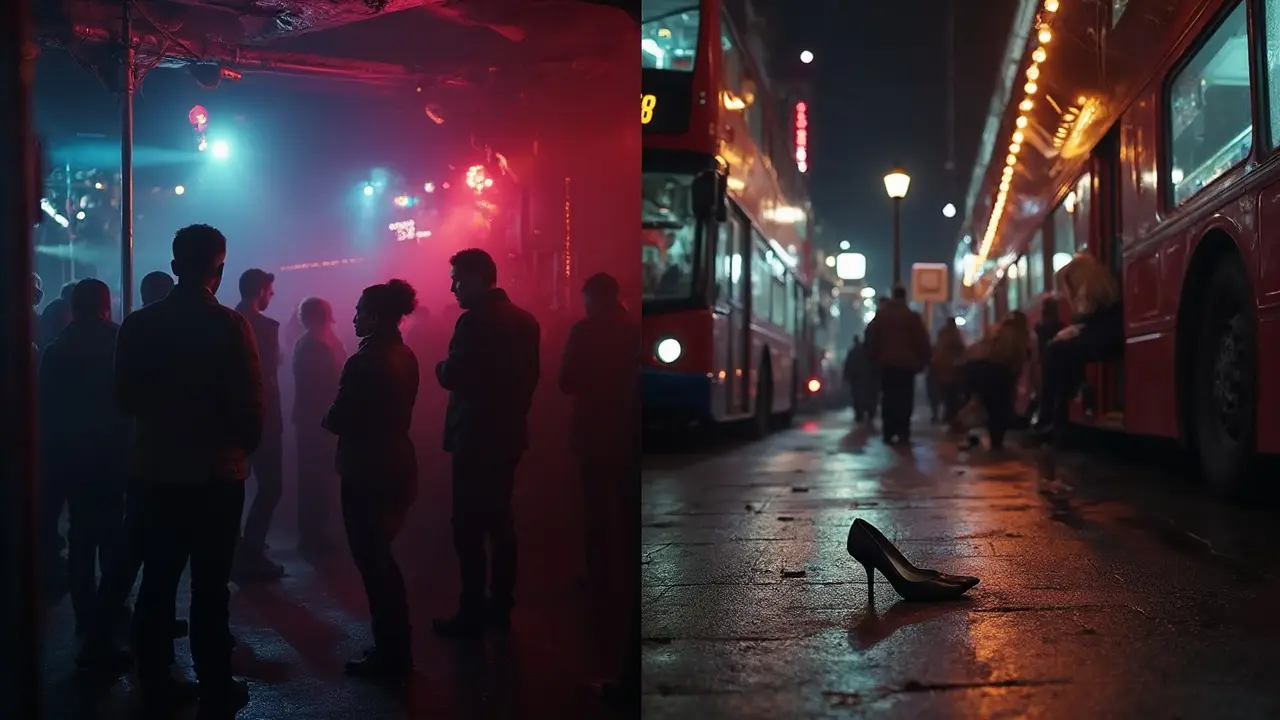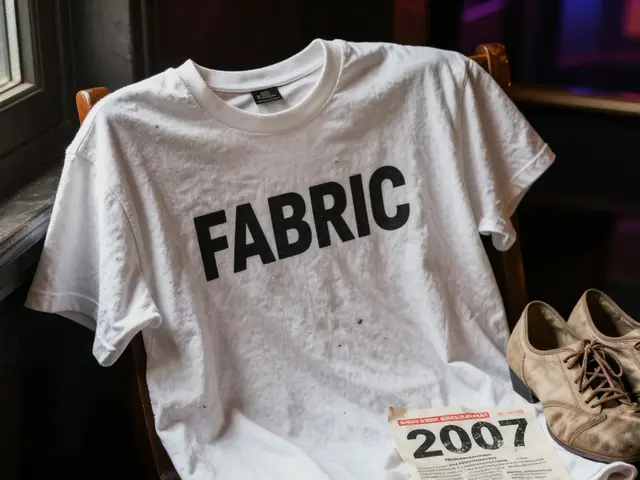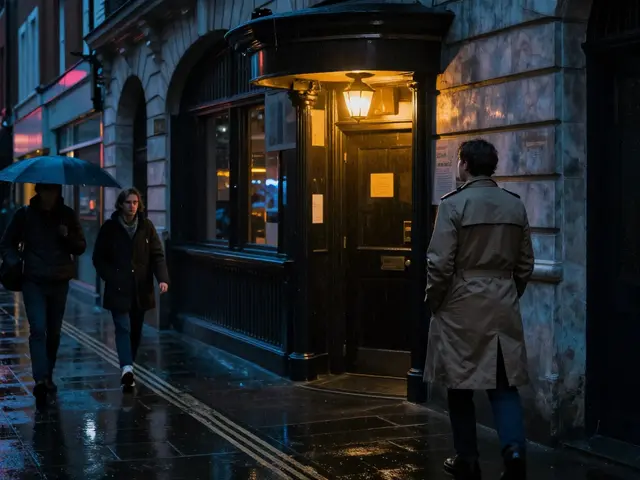
Ask anyone—clubbing can either be your all-time favorite Friday tradition or your absolute worst nightmare. For some, it’s pure fun packed with music, friends, and dancing that melts away the week’s stress. For others, the thought of wading through crowds and waking up with a headache is enough to put them off for life.
But why does clubbing get such a love-hate reputation? Whether you’re considering heading out for the first time or you’re wondering if you should retire your dancing shoes, it helps to get a real look at what goes down behind neon lights and booming speakers.
We’ll cut through the hype, share honest pros and cons, and give you straightforward tips on staying safe (and actually having a good time). Curious if clubbing is just harmless fun or a hidden health risk? You’re not alone—let’s unpack both sides, so you can make up your own mind with zero regrets.
- What Actually Happens in Clubs
- Why People Love (or Hate) Clubbing
- Dangers You Should Know About
- How to Make Clubbing Work for You
What Actually Happens in Clubs
If you haven’t been to a club before, it’s easy to imagine exaggerated scenes from movies—wild dance-offs, dazzling lights, and impossible-to-hear conversations. But what’s the reality? The core is simple: clubs are social spaces built around music, dancing, and drinks. Most clubs crank up the energy with a DJ or live performer, filling the place with loud music where people can dance, mingle, or just hang out at the bar.
Don’t be surprised if you notice the crowd changes based on the night or city. Some places cater to a young college crowd, while others pull in professionals looking for weekend escape. There’s a shared rhythm: you show ID at the door, get a wristband (if you plan to drink), pay a cover charge at busier spots, and head into pulsing lights. The bar usually stays busy, with folks ordering everything from pricey cocktails to bottles of water (hydration is underrated on a club night!).
Inside, you'll notice clubs come in all shapes and sizes. Some are massive warehouses with booming sound systems, laser lights, and video walls. Others are smaller, more chill hangouts focused on themed music or retro nights. Most clubs run special events—costume parties, celebrity DJ sets, or holiday blowouts—which can completely change the vibe.
You’ll find the following core things happening in most clubs:
- Clubbing centers around dancing—whether you call it getting down, grooving, or just moving to the beat.
- Socializing: People catch up, flirt, or network. Some go out in big groups for birthdays or celebrations.
- Drinking: Alcohol is pretty much part of the scene, and some clubs have drink minimums or offers (think 2-for-1 before 11 p.m.). Bartenders are busy, especially during peak hours.
- Music: DJs spin tracks to match the crowd’s mood. It’s normal for the playlist to jump genres fast—house, hip hop, reggaeton, or ‘80s throwbacks.
Important to know: bouncers and security staff watch over things, sometimes with strict rules. Clubs often check bags at the entrance or scan guests to keep things safe. If the club is popular, you might find a line outside, especially after midnight.
Here’s a quick look at what you might spot inside a typical club:
| Area | What Happens |
|---|---|
| Entrance | ID checks, entrance fees |
| Bar | Drinks ordered, meeting new people |
| Dance Floor | Dancing, socializing, DJ performances |
| VIP/Lounge | Reserved spots, bottle service, quieter chats |
| Restrooms | Often the only place for quiet (but not always pleasant) |
Quick tip: Most clubs peak around 1-2 a.m., so if you want space on the dance floor, arrive early. And yes, the music will probably be so loud you’ll yell more than talk. Your ears might thank you for earplugs—seriously, they’re a game-changer.
Why People Love (or Hate) Clubbing
Ever notice how people either get super excited about a night at the club or instantly say, “No way, not for me”? There’s usually no in-between. Let’s break down what makes clubbing such a mixed bag.
Clubbing can be a rush for anyone looking for energy, music, and pure distraction from daily stress. Dancing until your legs give out actually triggers your body to release endorphins, also called the 'feel-good' hormones. That’s science—research in the Journal of Applied Gerontology found that dancing can seriously lift your mood and kick anxiety to the curb. No wonder so many people end up on the dance floor, grinning from ear to ear even after a rough week.
It’s also a huge social scene. You’re surrounded by hundreds of people, which makes it way easier to meet new friends or even find a date—especially if you’re tired of endless dating app swipes. Some folks see it as a shot at popularity or just a way to boost confidence. Clubs also serve up music you usually can’t blast at home without angry neighbors. Giant subwoofers make it feel like the bass is thumping right through your body, and for music lovers, that’s pure heaven.
- Sense of community: Many regulars say their favorite clubs feel like a second home.
- Stress relief: Letting loose, dancing, and having no deadlines is a rare break.
- Chance to dress up: It’s an excuse to go wild with fashion—sparkly tops, bold heels, the works.
- Unforgettable moments: The group selfies and wild memories stick for years.
Of course, not everyone’s buying a ticket to party town. What’s the flip side? Lots of people find clubs too crowded, too noisy, and honestly, kind of fake. Long lines—just to get in—end up draining your buzz before the night even starts. Drinks cost more than dinner, and it’s easy to lose track of your friends in the packed crowd.
Social anxiety is real, too—a loud, crowded club can feel like a pressure cooker. Some hate the “meat market” vibe or get exhausted by shouting over the nonstop beats. Then there’s the morning after: headache, empty wallet, maybe embarrassing photos. According to a survey by the Office for National Statistics (UK), 43% of adults under 30 said that the hangover was their #1 reason for skipping clubs.
| Why People Love Clubs | Why People Avoid Clubs |
|---|---|
| Socializing with friends/new people | Too loud/crowded |
| Great music and dancing | High prices for entry and drinks |
| Letting off steam after a tough week | Hangovers and next-day regrets |
| Fun, memorable experiences | Not feeling safe or comfortable |
If you’re weighing it up, just remember: People go clubbing for all kinds of reasons, and skip it for just as many. It all boils down to what you want out of your night—and maybe how much you value sleep vs. stories to tell later.

Dangers You Should Know About
If you’re thinking about clubbing or you’re already a regular, it’s smart to get real about the possible risks. Every night out brings its own set of things to watch for—and honestly, no one wants a fun night to end badly. Here’s what you really need to know.
Clubbing often means being surrounded by a lot of people, loud music, and a mix of strangers, all while you might be less alert than usual. The most common risk? Overdrinking. It’s easy to lose track of how much alcohol you’ve had with music pumping and shots being passed around. Too much alcohol leads to poor decisions, bad hangovers, and sometimes even alcohol poisoning. Mixing alcohol with energy drinks or other substances ramps up these dangers.
- Theft and Pickpocketing: Crowded clubs are hotspots for stolen phones, bags, and wallets. Keep your belongings close or just bring the basics—ID, payment card, and your phone.
- Unsafe Hookups: The club scene can get flirty, but sometimes it means meeting people who aren’t as honest as they seem. Look out for friends and don’t leave with someone you just met unless you trust them.
- Drink Spiking: Sadly, drink spiking is a real threat. Never leave your drink unattended and don’t accept drinks from strangers—just because someone seems nice doesn’t mean you should take chances.
- Noise Levels: Clubs can get crazy loud. Spending hours right next to giant speakers can actually cause lasting hearing problems. Giving your ears a break or stepping outside every so often helps a lot.
- Getting Home Safe: After midnight, getting a cab can turn into an Olympic sport. Avoid wandering aimlessly or accepting rides from sketchy drivers. Always have a plan—ride share apps, trusted friends, or a designated driver.
One more thing: clubbing can also mean you mess up your sleep schedule. You might feel fine for a couple nights, but constantly missing sleep makes you grumpy, stressed, and less focused overall.
At the end of the day, knowing what could go wrong helps you make smarter choices. Prep before you go, look out for each other while you’re inside, and don’t ignore any red flags. That way, you get all the fun—and none of the horror stories.
How to Make Clubbing Work for You
If you want the club scene to add fun instead of stress to your life, you’ve got to approach it with a game plan. The “just wing it” style usually leads to bad surprises, lost wallets, and regrettable late-night food runs. So how do you keep the good vibes up without sacrificing your comfort, health, or bank balance?
First up, know your limits. It sounds obvious, but when the music is thumping and the group pressure is on, it’s easy to say yes to one more drink or one more hour. Most people are surprised at how much more fun they have when they listen to their bodies and take breaks to hydrate or sit out a song or two. Fun fact: alternating each drink with a glass of water helps you avoid the dreaded hangover and keeps your head clear all night.
Next, plan your night around people you actually like. People who make you laugh, look out for you, and don’t start drama can turn any night into a good one. Make a group chat, agree on a meet-up spot inside the club (it’s louder than you think), and share your travel plans. Google Maps even lets you share live locations—super helpful if someone gets separated.
Your outfit matters, too. Think comfort first. Closed-toe shoes protect your feet on crowded dancefloors, and bringing just the basics in a crossbody bag keeps your stuff safe. If you have allergies, consider wearing ear plugs (no shame—hearing loss is real in loud clubs). According to World Health Organization data, regular exposure to sounds over 85 decibels can damage your hearing, and club music often goes well beyond that.
Lastly, figure out your ride home ahead of time. Don’t rely on random cabs or late-night buses in unfamiliar areas. Schedule a rideshare or have a sober friend drive. The NHTSA reports a big spike in impaired driving incidents on Friday and Saturday nights, so always double-check who’s behind the wheel.
- Clubbing should add to your life, not drain it. Keep your head clear, check your surroundings, and remember it's okay to leave early if you’re not feeling it.
- Set a budget before you go—clubs have a sneaky way of emptying wallets fast.
- Eat a proper meal beforehand. Dancing on an empty stomach is a recipe for disaster.
- Charge your phone, bring a portable charger, and share your plans with someone you trust.
By making these tips part of your routine, you turn a random night out into a great memory instead of an awkward story. The fun’s in your hands—you just need to stack the odds in your favor.



